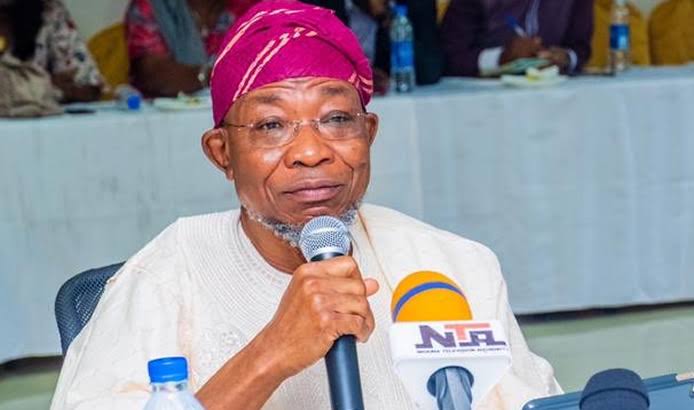The Federal Government of Nigeria has launched a $73 million intervention fund to boost the country’s sugar sector.
Gatekeepers News reports that the Federal Government launched a $73 million intervention fund to support the development of the sugar sector infrastructure.
Niyi Adebayo, minister of industry, disclosed this in Abuja at the formal commissioning of the sugar infrastructure intervention programme themed, “Presidential Intervention On Irrigation Infrastructure to Accelerate Sugar Backward Integration Programme Projects.”
Adebayo, who represented President Muhammadu Buhari, said the intervention fund is aimed at supporting the development of irrigation facilities on 10,000 hectares of the sugar plantation, for operators of the sugar backward intervention programme.
He said, “This morning I represented the President at the formal commissioning of the Presidential project on irrigation infrastructure.
“The intervention is the setting up of a $73 million intervention fund for irrigation for operators of the sugar backward intervention programme.
“The goal is to support the development of irrigation infrastructure on 10,000 hectares of sugar plantations located in six sites in Numan, Adamawa State; Sumti, Niger State; Lafiagi, Kwara State; Bacita, Kwara State; as well as Toto and Tunga, both in Nasarawa State.”
Adebayo said the Central Bank of Nigeria (CBN) would issue the needed funding for the project.
“The Central Bank of Nigeria is also involved in the provision of required funding for the project as well,” he added.
The minister said that the programme intends to increase Nigeria’s sugar yield in accordance with its goal to become a self-sustained producer of sugar.
“The aim is to increase significantly the sugar yield so that we can work within the National Sugar Development Plan master plan, with a view to Nigeria becoming self-sufficient in sugar production and possibly become a net exporter of sugar thus saving the country the large bill that it presently incurred in foreign exchange for the importation of sugar,” he said.
Abdullahi Sule, governor of Nasarawa, on his part, expressed delight towards the policy, describing it as the right direction towards becoming self-sufficient in sugar production.
According to him, sugar has a value chain that has the potential of generating more revenue for Nigeria, thus boosting its economy.
“Out of the 21 institutions or organizations that were licensed to produce ethanol only one is actually producing ethanol and one of the easiest ways to produce ethanol is through sugarcane so you can now understand the importance of this,” Sule said.







